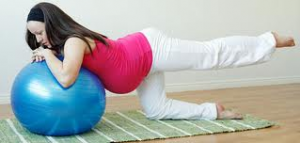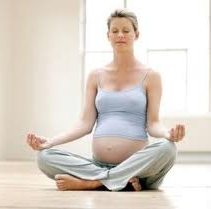
 Pregnancy brings many changes to the body, some of which can cause discomfort or lessening of your optimum health. Here is a guide for expectant mums to keep themselves in great shape, lessen the impact of pregnancy on the body and promote quicker recovery after child-birth.
Pregnancy brings many changes to the body, some of which can cause discomfort or lessening of your optimum health. Here is a guide for expectant mums to keep themselves in great shape, lessen the impact of pregnancy on the body and promote quicker recovery after child-birth.
Posture:
Throughout your pregnancy, your posture changes due to your growing baby. An excessive “sway back” posture can lead to lower back and pelvic pain. Stand nice and tall! Think about a long line going through your ears, shoulders, lower back, knees and ankles. A physiotherapist can help to assess your posture and address any stiffness that may develop in your lumbar spine and pelvic area.
Care of Your Abdominals:
The separation of the rectus abdominal muscles, also known as Rectus Abdominal Diastasis (RAD), can happen quite commonly during pregnancy. As your baby grows, your abdominal muscles split apart in the middle, and you might have a visible bulge or doming at midline.
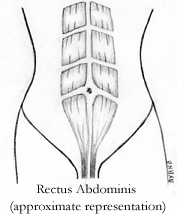
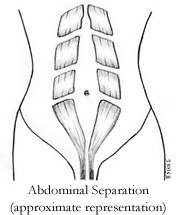 What you can do to prevent or manage diastasis is:
What you can do to prevent or manage diastasis is:
- Avoid crunching
- Roll onto your side when getting out of the bed
- Support your tummy with a cushion in bed
- Wear a well-fitted Pregnancy Belt (available at Bodysmart, contact reception for further information). It is best to have this fitted buy a Physiotherapist.
- Get assessed by a physiotherapist who can set you up with an exercise program
Exercise:
Regular mild to moderate cardiovascular exercise 30 minutes a day releases endorphins, the happy hormones, which are natural painkillers. Labour is very energy consuming and equivalent to moderate intensity aerobic exercise. Keeping up your fitness helps you to prepare for your big day. It is not ideal to do high impact exercise during pregnancy; whilst exercising ensure you can still continue conversation and don’t feel overheated.
Here are a few safe forms of exercise you can do during pregnancy, as long as you don’t overdo them!

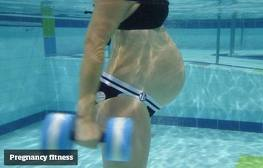

Swimming Swimming Hydrotherapy Walking
If you are unsure, what exercises you can and cannot do during pregnancy, ask a physiotherapist for advice.
Pelvic Floor Exercises:
Very important! Pelvic floor muscles get damaged during birth and are consequently weakened. There is strong evidence that doing pelvic floor exercises can facilitate better labour and also prevent incontinence or prolapse after giving a birth. Perform 10 sec hold per contraction + 10 quick contractions x3 set a day. A Physiotherapist can help you to contract your pelvic floor muscles correctly and customise a training program for you.
Diet:
A healthy weight gain is between 10-15kg during your pregnancy. So cut down on caffeine, focus on eating a healthy diet of plenty of complex carbohydrates, fruits and vegetables, protein, dairy foods.
Overall, pregnancy is a good time to start taking a good care of yourself both mentally and physically. Improve your posture, protect your abdominals, begin regular exercises as well as Pelvic Floor exercises, and maintain healthy diet. If any queries or concerns about pregnancy, women’s health physiotherapists are available at Bodysmart.
To get started click the link below or call (08) 9481 8708 to make an appointment.



